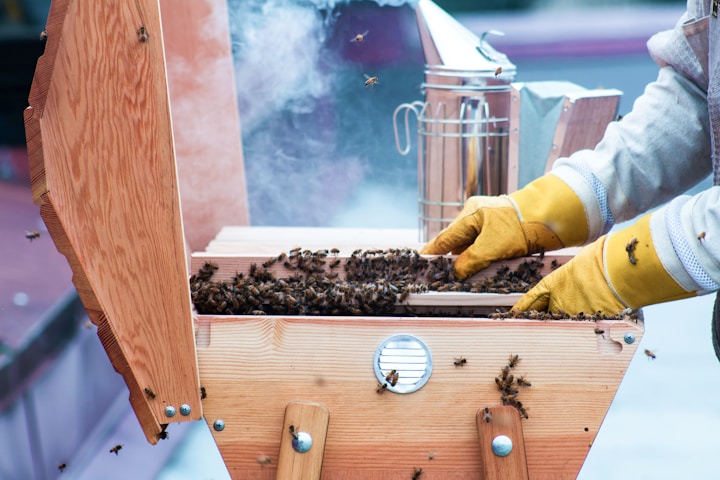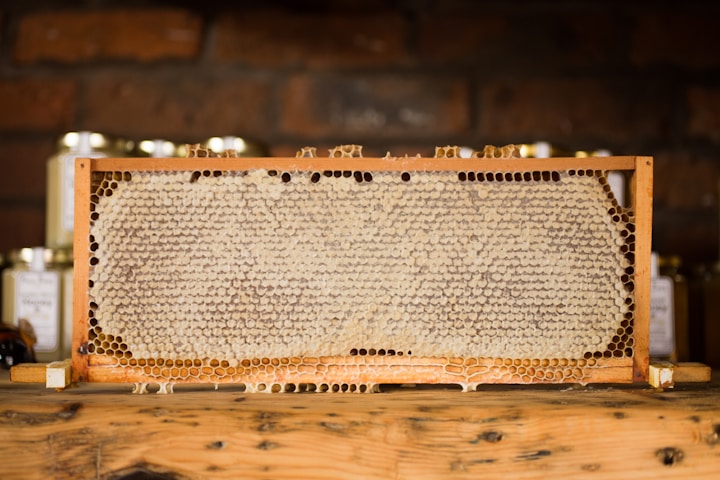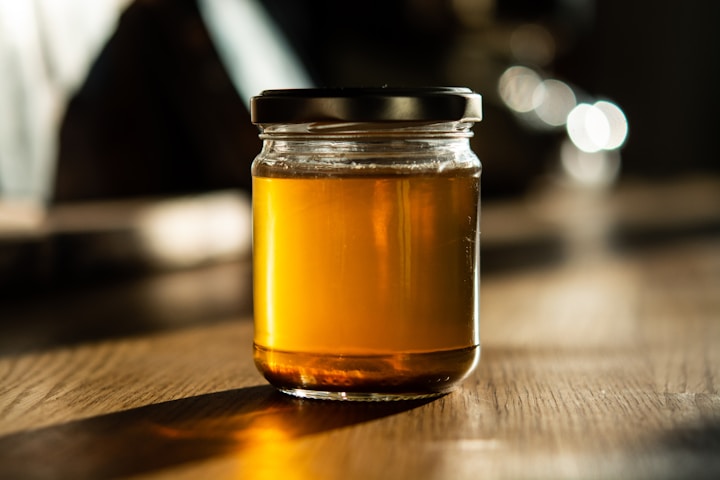

#1 Selling Honey in Greater Louisville, Kentucky
Honey Depot
3840 Ruckriegel Parkway (Suite 100) // Louisville, KY 40299
Products
Check out Honey Depot's year-round & seasonal products below.
AllYear-RoundSeasonalHoneyHoney UnflavoredHoney Flavored
Our Story
From humble beginnings with just two beehives, we have grown exponentially to manage over 400 beehives within three years. Today, through our collaboration with fellow Kentucky beekeepers, we oversee more than 1,500 beehives, producing an impressive 60,000 pounds of Ky Proud Honey annually.
Beekeeping education is part of our core mission and we offer introduction to beekeeping classes all year.
The Honey Depot is a our central location for all our honey products and Amish goods. Come visit us and pick up some local honey. Honey Depot located in Jeffersontown in Louisville, Kentucky on 10512 Watterson Trail.

FAQ's
Frequently Asked Questions about the wonderful world of Honey!
Is Honey Depot’s honey REAL honey?
Yes, all honey produced by Honeybear Farms is natural, raw, unfiltered, and harvested primarily from hives in Kentucky. We strain out bee parts and pieces of honey comb, otherwise it is straight from the hive. You can be sure that it is 100% honey! We also infuse some delicious flavors like Cinnamon Vanilla, Bourbon, and Elderberry to our all-natural honey! As the world becomes increasingly more food-conscious, we are happy to be a part of bringing the good stuff to customers who care about the difference.

Why do bees make honey?
Honey bees collect pollen, nectar and water to create honey and store it as food because it provides the energy for bees' flight muscles and heating for the hive in the winter. In addition, honey bees “cap” the honey with beeswax to preserve it so they have something to eat when there aren't many flowers in bloom. Honey can be stored in the hive and consumed when needed. When honey bees make more honey than the colony needs, beekeepers can harvest the honey, referred to as “surplus,” and make it available for our consumption!
How do bees make honey?
Honey is made from pollen, water and nectar, the sweet liquid produced by flowers. A worker bee sucks up the nectar through a long, thin tube called a proboscis and keeps it in a special honey stomach, known as the crop, which can hold up to 80 percent of a bee’s weight in nectar. Inside, the bee’s enzymes, including one called invertase, begin to break down the complex sugars into simpler ones that are less prone to crystallizing. The design of the honeycomb and constant fanning of the bees' wings causes evaporation, creating sweet liquid honey. The bees instinctively know when the honey is approximately 18.5% moisture and cap the honeycomb with a layer of beeswax to preserve it indefinitely. AMAZING!

Where do bees make honey?
Wild honey bees make hives in rock crevices, hollow trees and other areas that scout bees believe are appropriate for their colony; on average, a hive will produce about 50 pounds of surplus honey each year here in Kentucky, much more in some states or certain environments. Similar to the habits of domesticated honey bees, they construct hives by chewing wax until it becomes soft, then bonding large quantities of wax into the cells of a honeycomb. Beekeepers harvest it by collecting the honeycomb frames and scraping off the wax cap that bees make to seal off honey in each cell; once the caps are removed, the frames are placed in an extractor, a centrifuge that spins the frames, forcing honey out of the comb.
When is the honey bottled?
Surplus honey is usually harvested in the late spring, early summer and early fall. Beekeepers monitor their hives weekly and know when is the most appropriate time to harvest each hive, making sure to leave an adequate amount for the bees. The honey is extracted and strained to remove any remaining wax and other particles. After straining, it's time to bottle, label, and bring it to you; if the ingredient label says “pure honey,” nothing was added from bee to hive to bottle. All Honey Depot's honey is pure honey.
Does harvesting honey harm the bees?
No, harvesting honey and taking it from bees is not wrong, morally or otherwise. Bees are able to adapt to the loss of honey resources and most importantly, good beekeepers make sure to leave adequate honey in the beehive for the survival of the colony. Agriculture includes the production of both plants and animals. Beekeeping is a part of agriculture. It serves the demand for food by humans, and honey is a nutritious food that humans cannot make. The desire for honey consumption has led to the rise of beekeeping – an art that has been practiced for many centuries now. In beekeeping, honey is only one of the few products harvested from beehives, with the others being beeswax, propolis, and royal jelly. Each beehive product is used for different purposes and applications, and each product is sustainably harvested.
Location
Honey Depot
3840 Ruckriegal Parkway
Suite 100
Louisville, KY 40299Monday - Saturday : 11AM - 6PM
Sunday : 1PM - 5PM502-212-6228Contact US
Stay in touch with the latest news about Honey Depot events and updates.
Honey Depot
3840 Ruckriegal Parkway
Suite 100
Jeffersontown, KY 40299Monday 11AM - 6PM
Tuesday 11AM - 6PM
Wednesday 11AM - 6PM
Thursday 11AM - 6 PM
Friday 11AM - 6PM
Saturday 11AM - 6PM
Sunday 1PM - 5PM502-212-6228
© 2023 HoneyBear Farms KY LLC.














